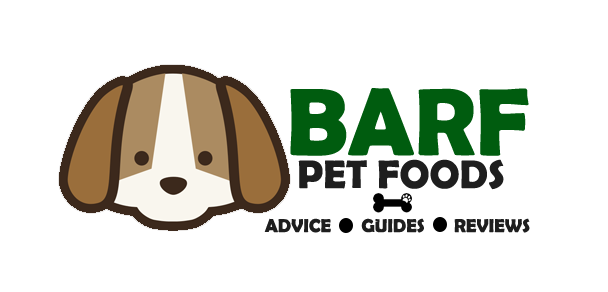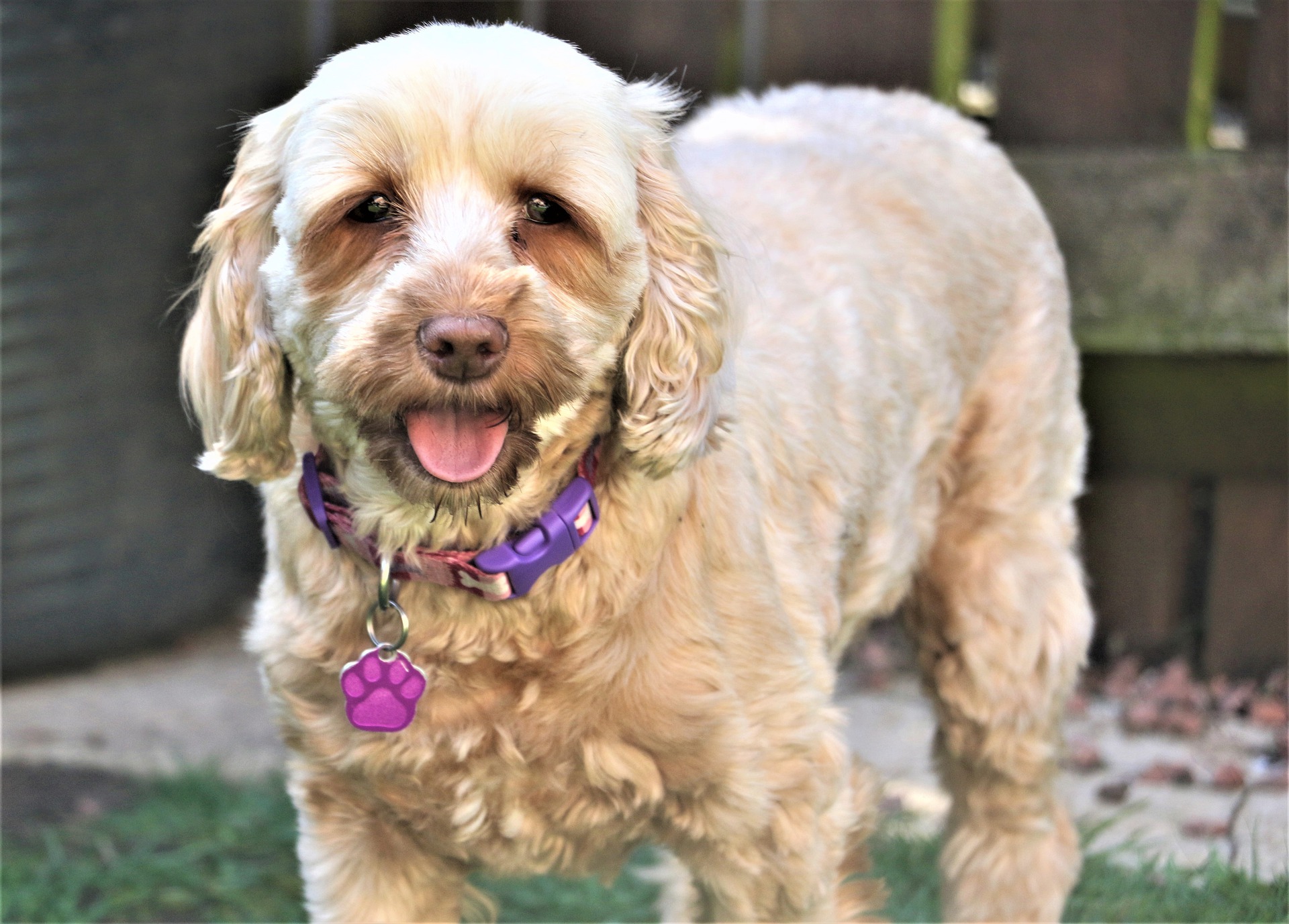If you’ve been searching for a new harness for your Cockapoo but have been left scratching your head at the numerous different types of dog harness out there, you’ve come to the right place. After all, with the sheer volume of dog harnesses currently available, it’s certainly a challenge trying to decipher which is the best choice for your beloved Cockapoo, and if you’re new to the world of dog harnesses, it’s easy to get into a muddle.
Luckily for you, we here at BarfPetFoods know a thing or two about dog harnesses and how to choose one that will suit your dog – in this case, a Cockapoo – best. Not only will we discuss the top five things to consider before buying a harness, but we’ll also delve into the various types of dog harness currently on the market and explore the best models within each harness type. All-in-all, you’re going to learn absolutely everything you need to know about dog harnesses. Grab yourself a refreshing beverage, sit back, and get comfortable; it’s time for your brain to suck up all of the following dog harness-based knowledge like a proverbial sponge…!
Five Things To Think About Before Buying a Harness For Your Cockapoo
Here are the five most important things to think about before purchasing a harness for your Cockapoo (in no particular order):
#1 – Do You Need a Dog Harness? If so, why?
Ok, so the first part of the question, i.e. ‘Do you need a dog harness?’, might seem a little silly given that you’ve made your way to an article about dog harnesses and are probably intent on purchasing one. However, it’s essential to think about whether or not a dog harness is the right choice for your Cockapoo, and if it is, why.
In 2021, more people than ever are choosing a harness over a traditional collar and lead, which has led to a rapid increase of a wide variety of harness styles and types becoming available. However, before thinking about which type of harness you need (we’ll discuss that in more detail a little later on), it’s essential to take a step back and ponder why you want to purchase a harness in the first place.
For most, the answer is a simple one, i.e., ensuring that when a dog is pulling, its throat is not taking all of the weight and force. I’d hazard a guess that’s at least one of the reasons you’re considering a harness for your Cockapoo, but it’s always wise to consider all options and think about all the reason why you’re gravitating towards a dog harness.
#2 – What Will Your Dog Be Doing?
Another vital question to answer is, ‘What will your Cockapoo be doing when he wears the harness?’. Anticipating what type of activities and adventures you and your Cockapoo will be going on is important prior to purchasing your harness.
Will you primarily be going on leads walks? Will you need a harness that doubles up as a seatbelt when in the car? Will you be spending time swimming? Is jogging with your dog something that will be a regular occurrence?
All of the above may seem like odd questions if you’ve not done any research into harnesses, but once you realise how many different types and styles of harnesses there are, you’ll understand why I’ve asked the above questions! Jot down the main activities you’ll be doing with your Cockapoo and think about other (less regular) adventures you might embark on from time to time.
#3 – Do Your Research
As we’ve already alluded to, there are a wide array of harness types available; therefore, it’s crucial that you carry out research into each type before committing to a purchase. Luckily for you, we’re going to delve into the various styles and types of dog harness a little later on in this article, so you won’t even need to leave this page to learn absolutely everything you need to know – including some examples of the best harnesses for your Cockapoo in each category.
Ultimately, we want you to make the best decision for you, your dog, and your hard-earned cash, so you can be rest assured that you’ll only receive the very best, 100% impartial, and 100% unbiased advice.
#4 – Dig a Little Deeper
Before making your final decision(s) on which harness(es) you’re going to buy, it’s essential to examine the finer points of them, i.e. look a little deeper than just what they are and what they do. For example:
- Think about the fabric and materials. If you plan on frequent swims with your Cockapoo, you’ll need a harness that’s constructed from materials that can deal with water (and potentially saltwater) as well as one that dries quickly.
- Consider how adjustable a harness is and how at many points, you’re able to adjust it. The greater number of adjustments points, the more of a ‘custom’ fit you’ll be able to create.
- Strength is also vitally important; it’s critical to opt for a harness that will put up with anything and everything you throw at it. Take a car harness, for example; harnesses that have been crash tested for safety are a better option than those that haven’t. Or, if you’re going to be lifting your dog in and out of a boat, for example, you’ll need a harness that is super-strong and fitted with a durable and comfortable handle/grip.
#5 – Fitting Your Cockapoo’s Harness
Contrary to popular belief, finding (and adjusting) a harness that fits correctly isn’t the easiest task in the world, i.e. you can’t just buy the first harness you see on Amazon and expect it to fit like a glove. Therefore, measuring prior to purchase is essential. Always opt for a snug fit, i.e. a fit that’s just shy of being tight but not too loose.
Luckily, most harnesses will come with a detailed sizing guide, showing the measurements of each section of the harness, allowing you to find one that suits your Cockapoo perfectly. The most critical areas to measure are the neck, chest, and midriff.
Once you’ve measured your Cockapoo, you can go ahead and purchase your harness. The question is, which type of harness should you buy? Well, let’s examine the different types available.
Five Types of Harness For a Cockapoo
In this section, we’re going to look at the five main types of dog harness, beginning with the vest harness. The information below will help you to determine which type of vest is best for your Cockapoo.
#1 – The Vest Harness
Vest harnesses are generally accepted as being the best type of harness for dogs that don’t pull or when they do pull, don’t pull particularly hard. While some will assert that vest harnesses can be used on dogs that pull, it really isn’t recommended because it’s no fun for your four-legged friend or you!
#2 – The Back Clip Harness
Like vest harnesses, back clip harnesses are best used on dogs that either don’t pull or don’t pull overly hard when they do pull. Regardless of which brand of back clip harness you opt for, it’s essential it fits snuggly, with just enough room to fit two fingers underneath the harness (just how a traditional collar would fit).
#3 – The ‘No Pull’ Front Clip Harness
The vast majority of harnesses attach to a lead at the back of your four-legged friend’s neck or a little further down their back. There’s no denying that this works effectively for some dogs, but if your dog is prone to pulling, attaching the lead to the back will, more likely than not, induce their ‘opposition reflex’ to kick in, which is far from beneficial for you or your dog.
If you’re unaware, the ‘opposition reflex’ is a dog’s natural instinct to push back against any force they feel, i.e. one pulling them in the opposite direction. A harness that only allows for our Cockapoo’s lead to be connected to the back encourages him to connect with his inner sled dog, which will result in a lot of pulling with a lot of force!
Luckily, harnesses with front clips help to avoid the ‘opposition reflex’. Rather than being pulled in the opposite direction, your dog will encounter a sort of a barrier when he attempts to pull forward, which, in turn, will actually slow him down. This may not sound like it’d have much impact on a dog that pulls hard, but you’d be surprised at just how effective it is!
#4 – The ‘No Pull’ Harness With Back and Front Clips
A small percentage of anti-pull harnesses have lead clips at both the front and the back, which is great if you’re after a versatile harness and your dog isn’t a great puller but does pull strongly from time to time. However, this form of harness is often webbed; therefore, it’s important to keep an eye out for hair loss or chafing under your Cockapoo’s armpits. Furthermore, this type of harness often fit rather awkwardly on some dogs, i.e. hangs down low at the front (around the chest) even after you’ve adjusted the harness. If you do opt for this type of harness and experience this, clip the harness loop and your dog’s collar loop together to your dog’s lead.
#5 – Head Halter
The last type of harness we’re going to look at is the head-halter. Head-halters are a fantastic choice for reactive dogs, powerful dogs, those being walked by children or adults with limited strength, or dogs for whom an anti-pull harness had zero effect.
If you’ve never seen ahead-halter before and/or have no idea how they work, it’s basically the same principle as a head-halter used on horses, i.e. you have complete control over the most sensitive part of their body and only need to use a light amount of force to control your dog.
Head-halters slide over your dog’s nose, fasten behind his ears and attach to the lead underneath the chin. Not to be confused with a muzzle! Your Cockapoo will still have the ability to open his mouth and hold a ball, don’t worry!
The Best Harnesses For Cockapoos
#1 – RabbitGoo No-Pull Dog Harness w/ Handle and Front Clip
Sitting atop our list of the best harnesses for Cockapoos is this offering from RabbitGoo (yes, I know, it’s a bizarre brand name!). But why is this harness at the top of our list? Well, let us explain using a series of easy-to-digest bullet points:
- It’s safe, comfortable, and durable. Made from durable, padded air-mesh nylon, the Rabbit Goo everyday harness is designed for use in all weathers and conditions and will remain comfortable for your throughout. Furthermore, it has reflective threads, which increase the visibility of your dog in low-light conditions.
- It’s fully adjustable. RabbitGoo’s Everyday Harness comes complete with four easily adjustable straps – two for your dog’s neck and two for your dog’s chest. Having tested this model, we can safely say that you don’t need to worry about your dog choking or escaping.
- It’s anti-pull. Sure, most brands say their harnesses are ‘anti-pull’, but this harness actually is. It has two lead rings (on the front and one on the back) that not only allow for greater control but also greater versatility. If you need to keep your dog under closer control, use the front clip; if you’re off for a job or hiking, use the back clip.
- It’s super easy to use. Putting it on and taking it off is a cinch. It slides over your dog’s head with ease and can be removed by merely releasing two buckles. Simple!
- It comes in a variety of sizes and colours. As we mentioned above, sizing is crucially important where harnesses are concerned; ensuring it fits well is imperative. The RabbitGoo Everyday Harness comes in four sizes, so you’ll no doubt be able to find one that is perfect for your Cockapoo (we’d guess the Small size, but if your Cockapoo is smaller or larger than average, you might want to look at a size up or down). Plus, it comes in 11 colours. Yes, that’s right, eleven colours!
#2 – Zellar No Pull Dog Harness w/ Front & Back Clips
Next on our list – in a very close second place – is Zellar’s No Pull Dog Harness. Like RabbitGoo’s harness, Zellar’s harness has a wide variety of features that make it a fantastic choice for all dogs, including Cockapoos. Let’s take a look at why this harness is so popular.
- Front and back clips for complete control and versatility. The two aluminium alloy lead rings of the harness are not only solidly constructed; they also allow your complete versatility. If your dog is a puller or you want to keep him under close control, you can use the front clip to keep him where you need him to be; if you’re out for a hike in the great outdoors or going for a jog in the park, you can use the back clip to allow him more freedom. Either way, you’ve got options, and it’s far better to have more options where controlling your four-legged friend is concerned.
- Strong, durable, and breathable. A harness that is tough, hard-wearing, comfortable, and breathable is one that can deal with any conditions and weathers and anything thrown at it. Of course, this harness isn’t indestructible, but it is certainly very well made, and there’s no reason why it shouldn’t last for a very long time, given its construction. Plus, it’s also comfortable for your dog and is unlikely to cause hair loss or chaffing (always check your dog after each walk, though, just to make sure).
- It was designed with safety in mind. Made from a reflective material and with an LED navigation light on top, you can be rest assured that you’ll be able to see your Cockapoo in all conditions, regardless of how low the light is.
#3 – GoodBoy Head-Halter Harness
The third harness on this list is – as you can no doubt tell from the title and image above – a head-halter. Although head-halter harnesses are less popular than regular body harnesses, they really are an effective tool for stopping your dog from pulling. In fact, I’d go so far as to say they are the most effective way to stop your dog pulling, so if you’re concerned about your Cockapoo pulling, I would certainly advise looking into use one, such as this one from GoodBoy. Here’s why we recommend it:
- Pulling prevention. As I mentioned above, head-halters are probably the most effective form of harness where pulling is concerned. After all, your dog can’t put their full weight and mass into pulling like they can with a harness; therefore, it’s likely that pulling will be a thing of the past if you use a head-halter. Of course, this isn’t 100% guaranteed, but from our experience, head-halters are exceptionally effective.
- Safe and comfortable. The biggest concerns most dog owners have regarding head-halters is that they look very uncomfortable and could potentially cause damage to the most sensitive part of a dog – their face/head. This is, of course, completely understandable; however, a correctly fitting head-halter made from comfortable materials will not cause any discomfort or injury. Furthermore, unlike a regular dog lead, a head-halter prevents choking.







